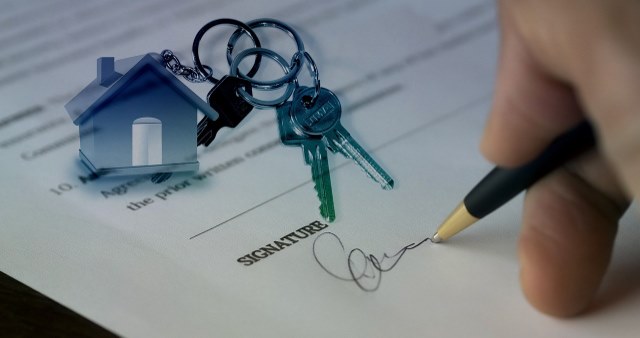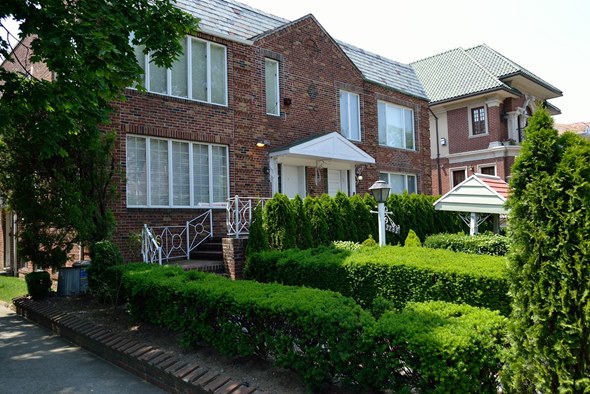Picture this: You just put your house on the rental market and receive many offers within days. After selecting a tenant, you pack up your belongings, rip out the “For Rent” sign, and use the profit you earn on your recent rental agreement to enjoy life’s little leisure, whether a vacation or a day on the boats.
Sounds dreamy, doesn’t it? If you find a reliable rental real estate agent, this dream can quickly transpire into reality. In 2021, 35% of the U.S. population were renters, proving that the market is bulging with profit potential for homeowners willing to lease their space.
Currently, the number of real estate brokerage firms scattered across the U.S. exceeds 106,000, but don’t let this mammoth figure deter you from tracking down the best real estate agent for rentals. With the proper guidance and exposure, you’re winning.
A reliable rental agent will be interested in more than just earning a commission; they will teach you how to rent your house successfully. Let this article enlighten you on the essential steps to finding a supportive property renting specialist.
Why Should I Find a Rental Real Estate Agent Near Me?

According to GlobalPropertyGuide, renting a one-bedroom apartment in Austin, Texas, can yield 13.78% profit. A three-bedroom house in San Diego, California, rents an average of $4,194 and can yield a 6.52% profit or, if you’re in Seattle, 6.18%.
Wherever your house pin may be on the map, solid support from an agent will assist you in cashing in on renting out. Renting your house with an agent means you don’t have to permanently say goodbye to your home. Meanwhile, you can use the rental income for mortgage payments.
Aside from the financial perks of finding a tenant, you can get into the real estate investment door with this side-earning strategy. Successful real estate investors begin by leasing their houses while upgrading to more luxurious properties.
How To Rent Your House With a Rental Property Real Estate Agent?

1. Assess Your Local Rent Laws
The first step is imperative and will give you a green or red light to understand if this path is right for you. You can perform a straightforward Google search within a few minutes by typing “short-term rental laws in [your city and state].”
Steer your attention toward your city’s official website, too, since it will feature short-term and long-term rental ordinance text.
2. Rental Agent or Property Manager?
You can benefit from both services, but it’s best to stick with a rental agent until your tenant signs the lease. Agents are well-equipped to handle the tenant screening phase and marketing phase.
They can use their immense market knowledge to organize open house events for networking purposes and filter through piles of rental applications precisely. Moreover, some rental agents also handle the financial elements.
Make sure you search for a professional in the right avenues, such as reputable agencies, on social media platforms like Facebook, via popular search engines, and using word-of-mouth referrals.
3. Prepare a List of Questions
Do not sidestep the process of interviewing a real estate agent. A dependable agent will prepare for your questions and will want to win you over at this stage by showing you what they can do. Listed below are some must-ask questions:
- What is your experience in filling rental vacancies, and can you provide past examples?
- What is the typical timeframe for finding someone to rent a house?
- Can you give me a run-down of your full-service list?
- Are there any additional charges that might creep up on me?
- What does the tenant screening process entail?
- Will you be the person who creates a lease agreement and deals with the signing process?
- Will you manage the property, or must I hire a manager?
4. Consider Short-term or Long-term
Will the property be vacant for long periods, allowing you to lease it out long-term? Or will you only be able and willing to rent it for a few weeks or months? The length of a rental contract determines the price, and as a real estate agent will tell you, high-tourism areas generally welcome heaps more short-termers than long-termers.
If you seek consistency in income and don’t want to deal with the hassle of finding new tenants regularly, it may be better to target long-term renters.
5. Dabble in Marketing
Although a property rental agent will possess the skills to promote your listing, you can add a little pizazz to the marketing stage. Who knows, you may have a friend or colleague who needs a place to sleep, or you may attract an influx of traffic by posting an ad on Craigslist.
If you use online listing sites to increase property awareness, ensure you include the key features, location, proximity to attractions, landmarks, transport, and critical elements of the lease. Don’t underestimate the power of offline marketing (word-of-mouth), too.
6. Calculate Income and Expenses
There’s no point entering the real estate rental market without calculating your incomings and outgoings. Although you can expect money to flow in once you find a tenant(s), you must also factor in a few streams of outgoings, such as maintenance, repairs, and hiring a property manager to handle the occupants.
After writing a list of your incomings, note down how much you pay in taxes, how much rent you’re receiving, and whether you’ll include additional services in the overall price, such as Wi-Fi and electricity.
7. Set Your Rental Price/Run a Home Valuation Report
There are a few ways to set a reasonable price for your rental that lures in tenants but still pockets you an attractive monthly amount. While the handymen are doing upgrades, drive around and seek similar properties with a “For Rent” sign sticking out of the front lawn. Consider their monthly rate and factor this into the equation. Conduct online searches, talk on the phone with property management companies, and peruse local newspapers to get quotes.
The real estate agent rental commission will bite a small chunk of your profit – usually somewhere in the range of 5% to 10%. Remember to include the security deposit in the overall price. The tenant will pay this once you seal the deal, and it is returnable so long as the house is in the same condition as it was when you handed over the keys.
8. Make Any Necessary Upgrades and Renovations
Living in an old house appeals to some people, especially if a beguiling history runs deep into its construction. However, older properties need extra attention since they are susceptible to damage, so prepare to spend money upgrading the foundation before you capture tenant interest.
A real estate rental agent will advise you to complete renovations and updates before advertising, even if the property is relatively new.
9. Let the Agent Do Their Work
Once you are comfortable with the agent you select for the job and complete all the necessary paperwork, take a deep breath – you are doing great. Now it’s the agent’s time to shine and show you why they are a valuable person for the job.
Try not to interfere since the agent typically knows best, but don’t be afraid to communicate and check in regularly to see how things are going. You can also share any ideas or suggestions, but putting your trust in the agent is paramount, so let them handle the tough stuff while you prepare for the next chapter.
10. Performing Background and Credit Checks
Even if someone is a trustworthy tenant, it is best to analyze their past rental experience and income sources. Credit history comes into play here, as well as background checks and tenant screening via downloadable applications like Zumper.
11. Finalize the Rental Lease Agreement
You can find everything you need to rent a property online nowadays. Sites like BiggerPockets feature state-specific rental agreements for all 50 U.S. states.
However, chances are you won’t need to go down this route because a good agent will maintain templates outlining the monthly rental prices, deadline for payments, length of the lease, and general rules. If you want to tailor the lease, this is also a possibility.
12. Carry Out Pre-Move and Post-Move Inspections
During the pre-move inspection, you will determine if the house needs deep cleaning, repairs, or restructuring services to ensure the comfort of your new tenants.
Suppose an agent finds you a respectable tenant. In that case, you won’t have to worry about walking into a pit of dilapidation during the post-move inspection. In the worst-case scenario, you can pay for the required repairs using the upfront security deposit if any unexpected damage occurs.
13. Hire a Property Manager or a Management Company to Deal with Renters
This is where a property manager comes in. Property managers can oversee the commercial or residential rental process once the tenant signs the contract. They handle all activity within the household and will inform you if they detect any suspicious behavior, such as the consumption of drugs or illegal activity.
They can hand out legal notices and implement rental policies in line with landlord-tenant laws. If you have a troublesome tenant, they will file evictions on your behalf.
Conclusion

Going into the rental business can be fun, but you also need a serious attitude when preparing. For example, if you rent out your home to tenants you have never met, an agent will recommend landlord insurance coverage.
Insurance will safeguard you if the unfortunate happens, such as a break-in, fire, pest infiltration, water damage, plumbing problems, or perhaps even a mishap on the renter’s part.
Does renting out your property make sense based on your financial situation? If you think it’s worth testing the waters, hire an attorney to examine the lease terms and search for a reliable accountant to make life easier.


 How Does a VA Loan Guarantee Work and Who Does It Protect?
How Does a VA Loan Guarantee Work and Who Does It Protect? 